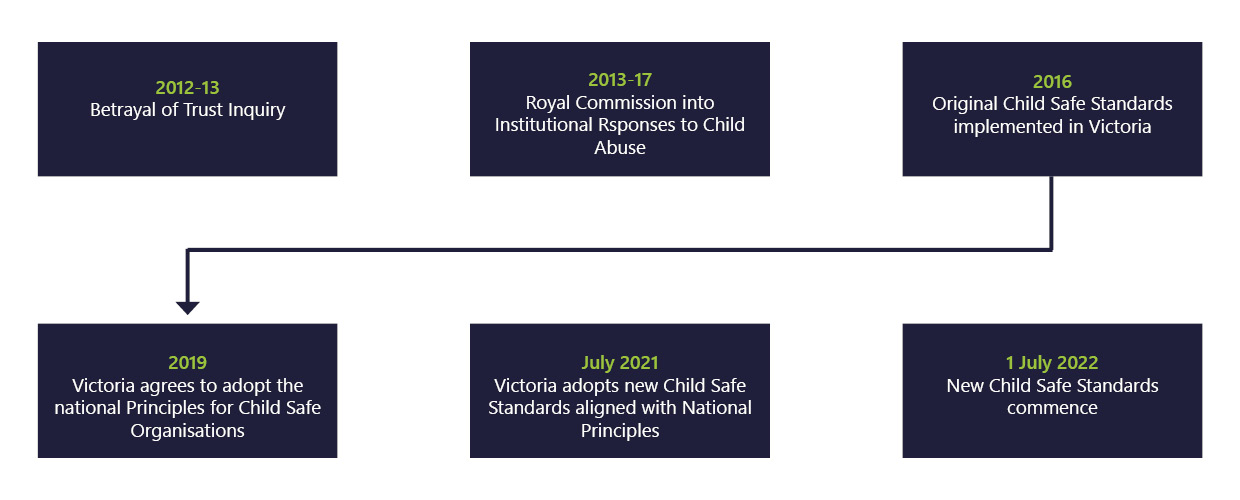Wodonga Federation of Government Schools’ Child Safe Philosophy
Wodonga Federation of Government Schools’ is committed to providing a child safe learning environment where the interests and safety of all children are promoted and protected. Wodonga Federation of Government Schools’ has a zero tolerance for child abuse.
As part of Wodonga Federation of Government Schools Child Safe Philosophy we adhere to Ministerial Order 1359 – Child Safe Standards which came into effect on July 1 2022. This forms the basis for all strategies, policies, procedures and practices, allowing staff, volunteers and contractors to promote children’s learning and wellbeing. Wodonga Federation of Government Schools recognises every child’s fundamental right to learning in a safe environment and participation in decision making. Decisions that the member schools make are therefore guided by the children’s safety needs and interests.
Wodonga Federation of Government Schools promotes an inclusive environment for all children, parents and staff. It believes every child, parent and staff member has the right to be valued and treated with respect and dignity. Particular attention is given to the child safety needs of Aboriginal students, those from culturally and linguistically diverse backgrounds, international students, students with disabilities, those unable to live at home, children and young people who identify as lesbian, gay, bisexual, trans and gender diverse, intersex and queer (LGBTIQ+) and other students experiencing risk or vulnerability. Inappropriate or harmful behaviour targeting students based on these or other characteristics, such as racism or homophobia, are not tolerated at our schools, and any instances identified will be addressed with appropriate consequences.
Staff at Wodonga Federation of Government Schools are trained in preventing and responding to child safety. All staff undergo ‘Working with Children Checks’ and sign a Child Safety Code of Conduct.
Child Safe Standards – History

Victoria’s 11 Child Safe Standards
Child Safe Roles and Responsibilities
All Staff
- Participate in child safety and wellbeing induction and training provided by each member school or the Department of Education and Training, and always follow Federation’s child safe policies and procedures
- Act in accordance with the Federation’s Child Safety Code of Conduct (http://www.wodonga.vic.edu.au/child-safe/)
- Identify and raise concerns about child safety issues in accordance with our Child Safety Responding and Reporting Obligations Policy and Procedures (http://www.wodonga.vic.edu.au/child-safe/), including following the Four Critical Actions for Schools
- Ensure students’ views are taken seriously and their voices are heard about decisions that affect their lives
- Implement inclusive practices that respond to the diverse needs of students.
Principal
- Dealing with and investigating reports of child abuse
- Ensuring that all staff, contractors, and volunteers are aware of relevant laws, school policies and procedures, and the Federation’s Code of Conduct
- Ensuring that all adults within The Federation and school community are aware of their obligation to report suspected sexual abuse of a child in accordance with the policies and procedures
- Ensuring that all staff, contractors and volunteers are aware of their obligation to observe the Code of Conduct (particularly as it relates to child safety)
- Providing support for staff, contractors and volunteers in undertaking their safety responsibilities.
Assistant Principal (Child Safe Officer)
- Promote a child safe culture at all times
- Provide child safe support and guidance to the school community
- Assess risk of abuse within their area of control and eradicate/minimise any risk to the extent possible
- Train and educate staff, volunteers and school council members about child safety and the prevention and identification of child abuse
- Facilitate the reporting of any inappropriate behaviour or suspected abusive activities.
School Council
- Champion and promote a child safe culture with the broader school community
- Ensure that child safety is a regular agenda item at school council meetings
- Undertake annual training on child safety
- Approve updates to, and act in accordance with the Child Safety Code of Conduct to the extent that it applies to school council employees and members
- When hiring school council employees, ensure that selection, supervision, and management practices are child safe. Across our member schools, school council employment duties are delegated to the principal who is bound by this policy.

Related Websites
Victorian Commission for Children and Young People’s Website
PROTECT











